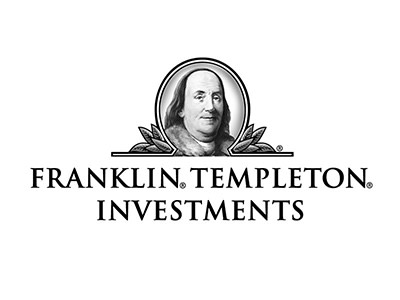The fund is managed by Lauren Romeo, who is supported by a highly experienced team at Royce with support from Franklin Templeton
The fund offers a differentiated approach to a lot of other US equity funds which means it has the potential to perform quite differently
Performance has been challenging in recent times however, we believe the fund still offers attractive returns with the potential to provide stability during volatile times.
This fund is on our Wealth Shortlist of funds chosen by our analysts for their long-term performance potential
How it fits in a portfolio
The FTF Royce US Smaller Companies fund aims to deliver long-term growth by investing in unloved US smaller companies, with the potential to come back into favour or recover in future. It could be a good way to add US exposure to a global portfolio, or work well alongside other US funds focused on larger, more growth-style companies. Smaller businesses are often among the most innovative and offer lots of growth potential, but they're higher risk than their larger counterparts.
Manager
The fund is managed by Lauren Romeo, who joined Royce and Associates in 2004 and became manager in 2010. We like the Royce team’s disciplined approach and think Romeo is an engaging and experienced fund manager with a passion for investing in smaller companies. Romeo is supported by a team with lots of experience, including the firm’s founder Chuck Royce who has been investing client money since 1973. We believe that the fund harnesses the skills of a talented team with a sensible investment approach. Romeo is also named as co-manager on some other funds in the US that invest with a similar philosophy as this fund. We’re satisfied that these responsibilities are manageable.
Process
Romeo aims to invest in companies that are unpopular with investors and buy their shares at a price significantly lower than she feels they’re worth. They might be facing headwinds in the shorter term, so it's important they don't have too much debt. Romeo and her team spend a lot of time meeting with a company's managers to make sure they've got the skill and experience to turn the business around. They also speak to customers, suppliers and competitors to make sure the managers are executing their plan.
This analysis leads Romeo’s team to decide what they think a company's shares are worth. She thinks this process provides opportunities to spot companies that are undervalued. This could also provide some support when markets are weaker – if a company's share price is already lower than it should be, it might not fall quite so far as those that are more expensive. They won't get it right every time though and even when they do, it can take some time for other investors to realise the opportunity and to see the share price rise. This means there will be periods where the fund underperforms and seems at odds with the wider market, so this style of investing requires patience.
After speaking to Romeo, she still believes that smaller companies are the place to be. There are potential catalysts for smaller companies to perform well including the President’s One Big Beautiful Bill which has some positive tax initiatives for smaller companies.
Romeo has made a number of changes to the portfolio over the last 12 months. This includes the addition of technology company Onto Innovation who provide quality control in semiconductor chip manufacturing. Truck transportation company Saia was also added. Romeo sold this company in 2021, but following a 30% fall in the share price earlier this year believes it looks attractive again.
She also sold a number of companies. Building manufacturing company Louisiana Pacific was sold earlier in 2025. After the stock performed strongly Romeo thinks there are now better opportunities elsewhere. Biotech software company Simulations Plus was also sold after they made a large acquisition, with the high price paid being a concern for Romeo. Also sold was fashion company Steve Madden given the potential impact tariffs could have on the company.
Culture
The fund is managed by Royce and sits under the Franklin Templeton umbrella. Smaller-company value investing is Royce's specialism – it’s what they do and is where their expertise lies. This single focus distinguishes the firm from other asset managers in the US. Fund managers at Royce are required to invest substantial amounts in the funds they run and have variable bonuses based on the long-term performance of their funds. We feel this is a positive and ensures alignment with the interests of investors.
ESG Integration
Franklin Templeton was previously a laggard on ESG integration. But since its integration with Martin Currie (as part of the broader Legg Mason acquisition), the group has made significant strides forward, in part because of its ability to leverage Martin Currie’s expertise. Responsibility for carrying out ESG analysis sits with individual analysts and portfolio managers, and all stock research must consider the material and relevant governance, social and environmental factors that could impact a company’s ability to generate sustainable returns.
The firm offers a range of strategies that take a more hands-on approach to thematic investing and impact. All investment teams have access to a dedicated Stewardship & Sustainability Council, which brings together leaders in stewardship and sustainable investing from across Franklin Templeton’s investment management groups, covering every asset class and strategy range. The Council shares best practice and thought leadership with the wider business. There is a firm-wide commitment to avoid controversial weapons.
Franklin Templeton fund managers and analysts engage with executives and board members of the organisations they invest in to review issues they believe are material to the firms’ long-term prospects, supported by the firm’s ESG team. They also vote at shareholder meetings wherever possible, informed by three third-party voting advisors. The firm publishes regular ESG-focused articles and an annual stewardship report. It also outlines its voting activity on a fund-by-fund basis, although voting rationale is not available
Romeo considers ESG (Environmental, Social and Governance) issues when researching individual companies. She thinks these factors have the potential to affect the long-term value of the investment and thinks sound understanding of how these factors could affect businesses is an important part of managing risk in the fund. That said, this is not a specialist responsible or sustainably invested fund.
Cost
The annual ongoing charge for this fund is 0.82%, but HL clients benefit from a saving of 0.33%, resulting in a net ongoing charge of 0.49%. This saving is provided through a 'loyalty bonus', which is tax-free in an ISA or SIPP. However, they may be subject to tax in a Fund and Share Account. The HL account charge of up to 0.45% per year also applies, except in the HL Junior ISA, where no account charge applies.
Performance
Over the last 12 months the fund’s lost 0.74%* and underperformed the gain of 4.51% for the IA North American Smaller Companies peer group. Past performance isn’t a guide to the future. We recently met Romeo and carried out our own analysis to find out more about this performance and the fund’s future potential.
The fund struggled when US President Donald Trump announced tariffs to some of the US's closest trading partners in April. This caused global stock markets, including US smaller companies, to fall significantly. The manager’s quality investment style means we usually expect the fund to lose less than the wider market during a shock of this type, but that won’t always be the case, which is what happened this time.
The fund had less invested in utilities, banks and REITS (Real Estate Investment Trusts), which held up better than some other sectors as they were seen to be less exposed to global trade disruptions. This held back performance, but these companies tend not to have the quality attributes Romeo looks for. Our analysis shows the fund usually holds up better when markets fall over the longer term though.
Markets subsequently bounced back and, while the fund did too, it didn’t keep pace with the strength of the rebound. Unprofitable companies tended to do better, but the fund focuses on higher-quality companies with more attractive earnings, which again held back performance. We expect the fund to perform in this way though – to not keep pace when lower-quality companies are leading the market.
The manager’s stock selection was also weaker over the last 12 months. Investments in healthcare companies Enovis Corp, Bio-Techne Corp and Haemonetics Corp were some of the weakest performers. Communication company Ziff Davis also struggled as spending on digital marketing fell over the past few years. Advancements in AI and the use of ChatGPT could also mean less people require their content and articles for information. Romeo has since sold the company.
Some other investments performed well. Technology firm ESCO Technologies and industrial companies Sterling Infrastructure and Enpro Incorporated contributed strongly to performance. Sterling Infrastructure could benefit from the AI spending boom as it provides construction for data centres.
From our recent meeting with Romeo, we were pleased to hear she’s taken time to reflect on this recent period of weaker performance, reevaluate the fund’s investments, and make adjustments where needed. She’s since sold several companies that have failed to perform as expected or where she has lost conviction. Other new investments that have been added have performed well so far, though this is over a very short period of time.
Over the longer term and since Romeo became a co-manager in 2010, the fund’s grown 317.37%. While this is an attractive return, it’s behind the 504.88% for the average fund in the IA North American Smaller Companies sector. This is disappointing, however we still have conviction in Romeo’s abilities and the fund’s long-term performance potential. Romeo has remained disciplined in her quality approach of investing for 15 years and we believe she can provide investors with attractive returns over the long run, with the potential to provide some stability compared with peers during volatile times.
We believe a well-diversified portfolio should have exposure to a mixture of different investment styles, asset classes and geographies, and we think this fund offers something quite different. All investments fall as well as rise in value, so you could get back less than you invest.
Annual percentage growth
30/09/2020 To 30/09/2021 | 30/09/2021 To 30/09/2022 | 30/09/2022 To 30/09/2023 | 30/09/2023 To 30/09/2024 | 30/09/2024 To 30/09/2025 | |
FTF Royce US Smaller Companies Fund | 40.99% | 0.51% | 10.87% | 5.69% | -0.74% |
IA North American Smaller Companies | 37.30% | -7.54% | -1.41% | 14.47% | 4.51% |


